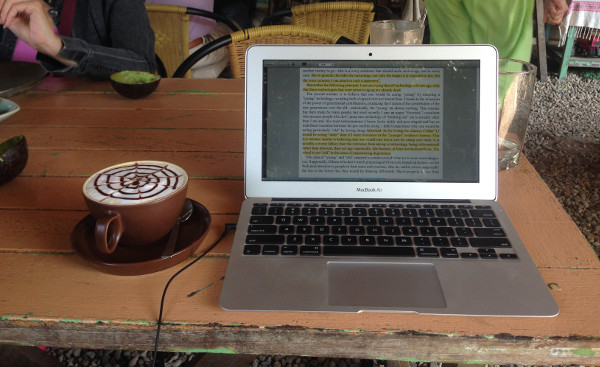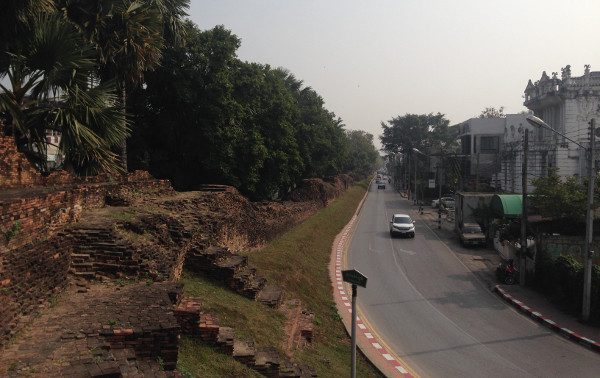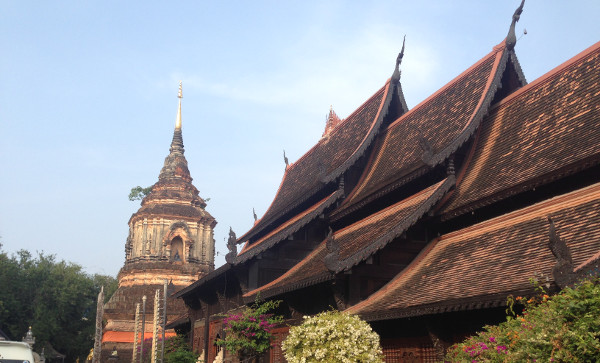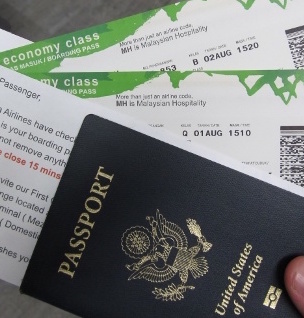Lifestyle-Overhead: Why Chiang Mai is Ground Zero
Some things we value: simplicity, focus, quality of life.
There are numerous reasons to ‘retire’ in SE Asia, including low-cost of living and high quality of life. But for laptop nomads, the goal is to minimize unnecessary overhead and and maximize time spent on things we care about.
Which is why SE Asia in general, or Chiang Mai in particular, is digital-nomad central. Old news to the veterans, but for everyone else, here’s one example of a place with virtually no penalty for being there.

What is lifestyle-overhead?
I’m willing to pay for exceptional things, but the non-monetary overhead associated with basic daily tasks wears me out. In many places the extra cost seems to outweigh most of the benefits of living there.
Everyone has a finite amount of mental bandwidth that can be squandered by bull****. I pick on San Francisco a lot (sorry), but if you want to go to the grocery store, park a vehicle, or get to the other side of the city you’re going to pay for it.
My notion of Lifestyle overhead originally comes from Dan’s post about why he was living in Bali:
In the past few years I had a realization: living in a city, over time, gradually wears me down and depresses me. I suspect this is the case for a lot of people but they put up with it because of the incredible benefits of being located in a metropolis.
Part of what appeals to me about cities like San Diego is that you get city level services, people, and opportunities in a town like atmosphere. In general “lifestyle overhead” drives me crazy. It’s amazing to me how much time people in Los Angeles and New York spend just dealing with the day to day of living there– commutes, long lines, busy grocery stories, increased costs, endless ”networking,” you name it.
Lifestyle overhead, “just dealing with the day to day,” falls into a few categories:
- Cost of living – paying exorbitant amounts for the basics, like everything in San Francisco (but especially rent), groceries (Hawaii), etc. Check out Numbeo for some fun with cost of living numbers. Anything that reduces lifestyle and business runway is lifestyle overhead.
- Time-sucks – semi-functional public transportation, laundromats (vs having washer/dryer at home or someone to pay to do it for you), busy chain grocery stores, commutes for anything (work/fitness/fun), etc.
- Pollution – smog, smoke from burning, etc.
- Safety – likelihood of being robbed, mugged, or spending any mental bandwith thinking about it.
- Weather – most of us like to be warm, and weather that keeps me inside can be overhead (but not always).
The lifestyle overhead in Chiang Mai on a scale of 1-10 is exactly “0”.

Nothing is difficult here. A lot of this has to do with the affordability of paying for solutions (like a maid, laundry, not cooking) etc, but it’s more than that. In SE Asia anything I need (food, clothing, a haircut, a tailor, etc) is available on the nearest street-corner. I live above a fantastic coffee shop. I can get anywhere in the city in less than 10 minutes by motorbike. The wifi is fast and plentiful. Thai people are extremely friendly. It’s sunny and warm most of the time. The economics of low-cost airlines means I can fly anywhere in SE Asia for $100-$200, making CM an excellent regional hub. And so on.
Where my time goes in Chiang Mai
Daily-
- 6:50 – Wake up
- 7:00-7:50 – Drink Bulletproof coffee and check in on work
- 8:00 – head to CrossFit (8 minute scooter ride)
- 11:00 – Park at nearby coffee shop. Eat breakfast ($2.50)
- 11-12:30 – Work
- 12:30 – Move to coffee shop #2. Cappuccino ($1.25)
- 12:30-2:00 – Work
- 2-2:30 – Lunch ($2.00)
- 2:30-400 – Finish up work
- 4:00+ Free time/Read/Work on other projects
Weekly-
- Thursday – Maid cleans my apartment (free/included)
- Saturday – Rock climbing at nearby crag (+ a few half-days a week)
- Sunday –
- give my laundry to local cleaners ($1-$2)
- 1hr Thai massage at next-door school for the blind ($4)
There is virtually no time spent on distractions, paying dues, or overhead BS. There is no commute, there is no time spent on things that are not either productive or enjoyable.
The Ease of Setup and Economics
Did I mentioned that it takes less than 8 hours from arrival to complete setup? This includes my finding and paying for my apartment ($153/month), CrossFit gym membership ($70/month), scooter rental ($90/month), local phone/data plan ($24/mo unlimited data). It’s the most turn-key place to start getting-sh*t-done that I’ve ever seen.
Financially, it’s also hard to beat: you’d be hard-pressed to spend more than $1200 a month if you were really pushing things. If you’re careful, you can easily get by on $700-$1000 a month. Or Less: What living on $20 a day looks like.
I could rent an apartment here for a year for $1800. While it isn’t just about money, having this in the back pocket means that for every $15,000 I have in the bank I have a year of business/lifestyle runway. While quitting a job and moving to Thailand is a big jump for many, this is the safest possible way to dip your toes into the waters of self-employment / location-independent work.
What’s the Catch?
No place will fulfill every need (thankfully). There are a few things to know about Chiang Mai:
- There isn’t that much to do compared to a city like Bangkok (which is a good thing if you want to get things done) and
- It’s nearly (or actually) un-livable a few months out of the year to due burning-season pollution and heat (March-April).
Otherwise, if you can deal with moderate motorbike traffic (walking in SE Asia is undoable for me) you’re in business.
Conclusion
You don’t have to move to SE Asia to find low lifestyle-overhead: many places in the USA fit the bill, and if you make enough money you can create it for yourself almost anywhere (except San Francisco 🙂 ). But Chiang Mai is one exceptional example of a place where one can live virtually pain-free and reinvest the time and energy liberated from basic inefficiency into things that really matter.
In the future I’m willing to trade some aspects of this ease of use for other benefits, but CM will be the baseline which other places are measured against.
More:
- Slouching Toward Nimmanhaemin – An excellent article on Chiang Mai digital-nomad culture & history.






